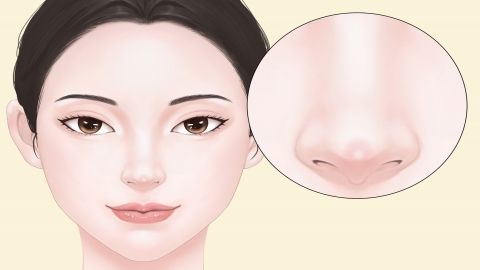What are the post-operative care instructions after breast augmentation?
Generally, prosthetic rhinoplastyimproves the nasal contour by implanting a prosthesis into the nose.The usual reference price for prosthetic rhinoplasty is 3000-8000 yuan per session, with visible improvements typically observed 1-3 months after surgery. Postoperative care includes attention to wound care, adherence to medication instructions, dietary and lifestyle adjustments, avoiding strenuous activities and touching the nose, and regular follow-up visits. A detailed explanation is as follows:

1. Pay Attention to Wound Care
Prior to suture removal, keep the wound area clean and dry, and avoid contact with water to prevent infection. You may gently wipe any scabs or secretions on the wound daily with a cotton swab dipped in normal saline or cooled boiled water, then apply a thin layer of erythromycin eye ointment or fusidic acid cream to protect the wound and prevent infection.
2. Follow Medical Advice on Medication
After surgery, take antibiotics under the guidance of your doctor to prevent infection. If symptoms such as pain or swelling occur, follow medical advice to take analgesics or anti-inflammatory drugs for relief. However, these medications should be used in moderation to avoid adverse reactions caused by excessive intake.
3. Dietary and Lifestyle Adjustments
Postoperative diet should be light and easy to digest. Avoid spicy, stimulating, or greasy foods, as they may interfere with wound healing. Maintain a regular routine, avoid staying up late and excessive fatigue, to promote physical recovery.
4. Avoid Strenuous Activities and Touching the Nose
For the first two weeks after surgery, avoid strenuous activities and touching the nose, as this may cause displacement of the implant or affect wound healing. Try to sleep on your back and avoid prone or lateral positions to prevent pressure on the nose.
5. Regular Follow-up Visits
Follow the follow-up schedule advised by your doctor, usually one week, one month, and three months after surgery. These visits aim to assess surgical outcomes and recovery progress and to detect and address any potential issues promptly.
It is recommended to visit a reputable hospital and perform the above procedures under the guidance of a qualified physician to ensure the safety and reliability of the procedure. Postoperatively, protect the nose from external pressure or impact. Elevating the head slightly while sleeping can help reduce nasal swelling.









